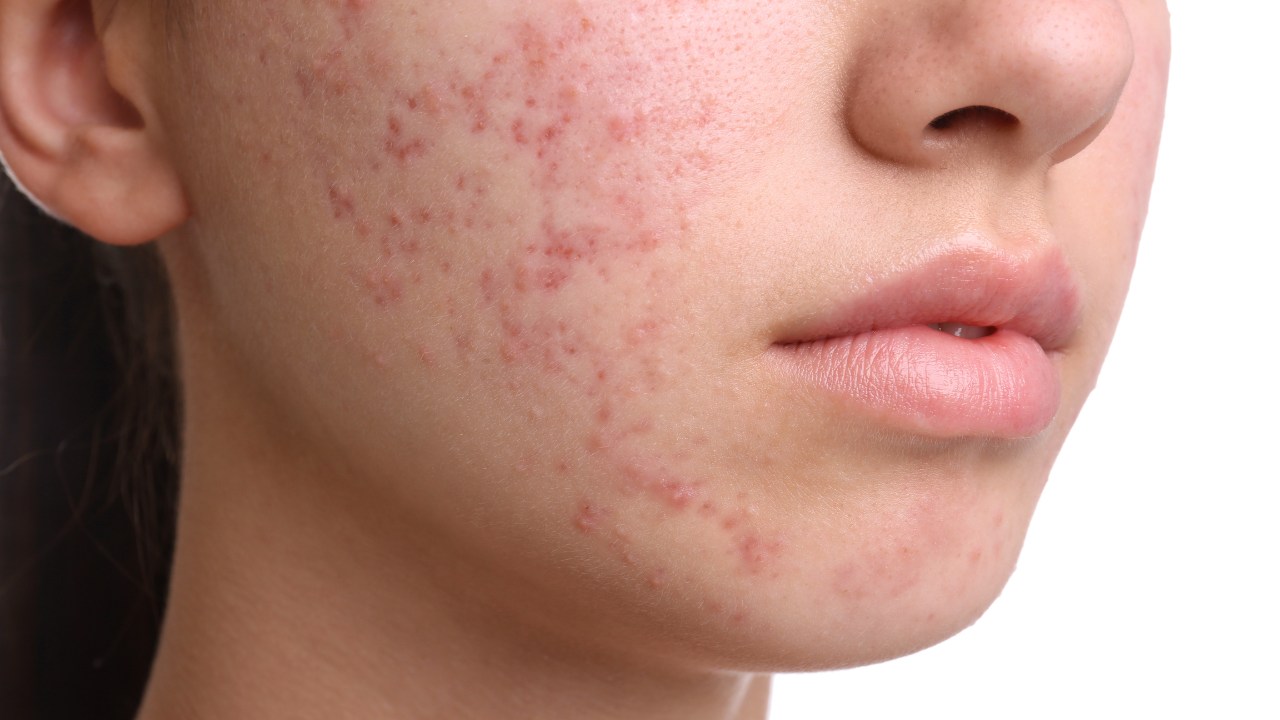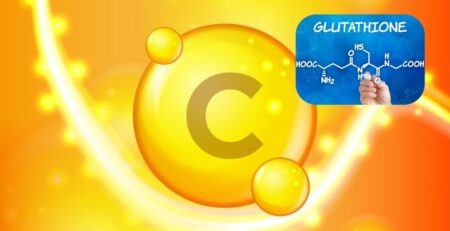Does Vitamin C Help Acne Scars? Unlocking Vitamin C Benefits
Vitamin C is a revered antioxidant that promises to protect, rejuvenate, and rewrite the history of our skin’s surface. Here in this blog, we will loook into the heart of this question, exploring the science behind Vitamin C’s acclaimed healing powers.
Can this essential nutrient be the key to diminishing the appearance of acne scars and restoring the radiance of your skin?
Stay put as we unravel the mysteries of Vitamin C, offering insights into how it works, its effectiveness, and how to incorporate it into your skincare regimen for maximum benefit. Let’s introduce you to a world where clarity meets skincare and discover if Vitamin C is the hero your skin has been waiting for.
Understanding Acne Scars
Acne scars are permanent textural changes and indentations on the skin due to severe acne. When acne breakouts penetrate the skin deeply, they damage the skin and the tissue beneath it. As the acne clears, the body tries to repair this damage.
During the healing process, the body produces collagen—a substance that gives the skin support. Scars can form if the body produces too little or too much collagen. The amount of collagen determines the type of scar.
Types of Acne Scars
Acne scars vary in appearance and can be categorized into three main types: boxcar, rolling, and ice pick scars.
- Boxcar Scars are broad, usually box-like depressions with sharp edges. They are formed when an inflammatory breakout destroys collagen, leading to a loss of tissue and leaving these broad depressions. Boxcar scars can be shallow or deep, depending on the tissue lost.
- Rolling Scars are caused by fibrous bands of tissue that develop between the skin and the subcutaneous tissue below. These bands pull the epidermis, anchoring it to deeper skin structures, and create the appearance of rolling or undulating indentations on the skin’s surface. Rolling scars are typically wider than ice pick or boxcar scars and have a sloping edge that makes the skin appear wavy.
- Ice Pick Scars are deep, narrow scars extending into the dermis. The skin looks as if it has been punctured with a sharp tool. Ice pick scars are usually the result of an infection from a cyst or another deep, inflamed blemish. Because they extend deep into the skin, they are one of the most challenging acne scars to treat.
Psychological Impact of Acne Scars
The psychological impact of acne scars extends far beyond the physical appearance. Individuals with acne scars often experience a significant decrease in self-esteem and self-confidence. This can lead to social withdrawal, depression, and anxiety.
The visibility of acne scars, especially on the face, can affect personal and professional relationships and, in severe cases, may even hinder career opportunities or academic performance due to decreased participation and confidence. The emotional distress from acne scars can vary significantly among individuals, but it’s essential to recognize the profound effect it can have on one’s mental health and quality of life.
The Role of Vitamin C in Skin Health
Vitamin C, ascorbic acid, is a powerful antioxidant crucial to skin health. This water-soluble vitamin is essential for synthesizing collagen, a protein that helps keep the skin firm and strong. The body does not produce vitamin C, which must be obtained from the diet or topical applications.
Antioxidant Properties
Vitamin C’s antioxidant properties help protect the skin from damage caused by free radicals—unstable molecules that can harm cells and contribute to aging and diseases. By neutralizing free radicals, vitamin C can help prevent premature skin aging.
Collagen Synthesis
Collagen synthesis is vital for the repair and maintenance of healthy skin. Vitamin C is a necessary co-factor for the enzymes that stabilize and cross-link the collagen molecules, leading to more resilient skin. By promoting collagen production, vitamin C can help reduce the appearance of wrinkles and improve skin texture.
Skin Brightening
Vitamin C inhibits the enzyme tyrosinase, which produces melanin, the pigment that gives skin its color. By reducing melanin production, vitamin C can help lighten hyperpigmentation, even out skin tone, and enhance skin radiance.
Healing and Repair
Vitamin C accelerates the skin’s natural repair systems and directly inhibits further damage by reducing inflammatory responses. It is particularly beneficial in the healing process of acne scars, as it promotes the formation of new, healthy skin cells and reduces the appearance of redness and inflammation.
The Role of Vitamin C in Skin Health
Vitamin C, scientifically known as ascorbic acid, is celebrated in skincare for its potent antioxidant properties and indispensable role in maintaining skin health.
It cannot be synthesized by the human body as an essential nutrient, necessitating its inclusion through diet or topical application to harness its skin-rejuvenating benefits.
Vitamin C: A Powerful Antioxidant
Antioxidants are crucial in combating oxidative stress caused by free radicals—unstable molecules that can damage cells, leading to premature aging and various skin disorders.
Vitamin C’s antioxidant capability allows it to neutralize free radicals, thus preventing them from causing harm. This action defends the skin against premature aging and enhances its natural regenerative processes, contributing to a youthful appearance.
Collagen Synthesis and Skin Rejuvenation
One of the most celebrated benefits of vitamin C is its vital role in collagen synthesis. Collagen is the most abundant protein in the skin, providing structure, elasticity, and firmness. As we age, collagen production declines, leading to wrinkles and sagging skin.
Vitamin C is a necessary cofactor for the enzymes responsible for stabilizing and cross-linking collagen molecules, essential for forming strong, resilient collagen fibers. By stimulating collagen production, vitamin C helps to reduce fine lines and wrinkles, and improve the skin’s overall texture, promoting a more youthful and revitalized appearance.
Protection Against Sun Damage
Exposure to ultraviolet (UV) radiation from the sun can cause significant skin damage, contributing to premature aging and increasing the risk of skin cancer. Vitamin C’s antioxidant properties extend to protecting the skin from harmful UV rays.
While it does not absorb UV light, vitamin C aids in the skin’s natural regeneration process and helps to repair damaged skin cells. A broad-spectrum sunscreen provides an extra layer of protection by neutralizing free radicals produced by UV exposure, reducing signs of sun damage such as discoloration and fine lines.
Evening Skin Tone and Reducing Hyperpigmentation
Hyperpigmentation, including sunspots, age spots, and melasma, is caused by an overproduction of melanin in certain areas of the skin. Vitamin C can help to brighten the skin and even out skin tone by inhibiting the enzyme tyrosinase, which is involved in melanin production.
This action not only helps to reduce existing dark spots but also prevents new ones from forming. The result is a more even-toned complexion, with reduced appearance of dark spots and enhanced skin radiance.
Additional Benefits for Skin Health
Beyond its primary functions, vitamin C offers several other benefits for the skin, including:
- Reducing inflammation: It can help to soothe the skin and reduce puffiness, making it beneficial for conditions like acne and rosacea.
- Enhancing skin hydration: Vitamin C can help the skin retain moisture, improving hydration and a plumper appearance by decreasing transepidermal water loss.
- Improving skin healing: Its role in collagen production and its anti-inflammatory properties make vitamin C beneficial in the healing process of wounds, including acne scars.
Vitamin C and Acne Scars
The battle against acne scars has led many to seek effective solutions, and recent research points to Vitamin C as a promising ally. Acne scars, the often stubborn remnants of acne breakouts, can significantly impact one’s self-esteem and skin appearance.
Vitamin C, with its multifaceted skin health benefits, has been shown to play a crucial role in reducing the appearance of these scars.
Research Findings on Vitamin C’s Effectiveness
A growing body of research supports Vitamin C’s effectiveness in treating acne scars. Studies have demonstrated that topical application of Vitamin C can significantly improve the appearance of acne scars, with subjects reporting a noticeable reduction in the depth and discoloration of scars.
A specific study published in the “Journal of Clinical and Aesthetic Dermatology” found that a topical formulation containing Vitamin C applied for 12 weeks significantly improved the texture and color of acne scars among participants.
Mechanisms of Healing
Vitamin C contributes to the healing process of acne scars through several mechanisms:
- Promoting Collagen Formation: Collagen is crucial for skin regeneration and repair. Vitamin C stimulates collagen production, helping to fill in the pits left by acne scars. The increased collagen production can lead to smoother skin texture and a reduction in the appearance of scars.
- Reducing Pigmentation: Hyperpigmentation often accompanies acne scars, leaving dark spots that can linger long after the initial breakout has healed. Vitamin C inhibits melanin production, the pigment responsible for these dark spots, helping to fade hyperpigmentation and even out skin tone.
- Enhancing Skin Repair: Vitamin C accelerates the skin’s natural repair process by promoting wound healing and preventing post-inflammatory hyperpigmentation. Its antioxidant properties also protect against further damage by neutralizing free radicals that can worsen the appearance of scars.
- Anti-inflammatory Action: Inflammation can exacerbate the formation and severity of acne scars. Vitamin C possesses anti-inflammatory properties that help reduce redness and swelling, aiding in the overall healing process of the skin.
Visual Evidence and Testimonials
While medical advertising guidelines restrict the use of unverified before-and-after images, numerous testimonials from dermatologists and patients alike underscore the efficacy of Vitamin C in treating acne scars.
Many users report a significant improvement in the appearance of their scars after incorporating Vitamin C serums or supplements into their skincare routine. Dermatologists often highlight the role of Vitamin C in comprehensive scar treatment plans, noting its ability to improve skin texture and coloration as part of a holistic approach to skin health.
It’s important to note that the effectiveness of Vitamin C can vary depending on the severity of the acne scars and the form of Vitamin C used. Dermatologists recommend using serums that contain a stable form of Vitamin C and have a concentration between 10% and 20% for optimal results.
How to Use Vitamin C for Acne Scars

Incorporating Vitamin C into your skincare routine can significantly impact the appearance of acne scars, promoting healing and improving overall skin health. However, the effectiveness of Vitamin C can vary based on its form, concentration, and how it’s used. Here’s how to effectively incorporate Vitamin C for treating acne scars.
Incorporating Vitamin C into Your Skincare Routine
- Topical Serums: Vitamin C serums are the most popular method for delivering antioxidants directly to the skin. They are typically applied once or twice daily after cleansing but before moisturizing. Serums are favored for their high concentration of active ingredients and ability to penetrate deeply into the skin.
- Creams and Moisturizers: For those with drier skin types, Vitamin C-infused creams and moisturizers can offer the dual benefits of hydration and scar treatment. While generally lower in concentration than serums, they are an excellent way to incorporate Vitamin C into your routine if you have sensitive skin.
- Dietary Supplements: Ingesting Vitamin C through diet or supplements can also support skin health from the inside out. While topical application is more direct, ensuring enough Vitamin C in your diet supports overall skin health and collagen production.
- Sunscreen: Vitamin C can also be found in some sunscreens. Combining Vitamin C with sunscreen can protect the skin from UV damage while treating acne scars, making it a dual-action approach.
Importance of Concentration and Form of Vitamin C
The concentration of Vitamin C in skincare products can range from less than 5% to more than 20%. For treating acne scars, dermatologists often recommend products with a concentration between 10% and 20%. This range is effective yet gentle enough for most skin types. Products with too low a concentration may not be effective, while those with too high a concentration can irritate, especially for sensitive skin.
The most researched form of Vitamin C is L-ascorbic acid, known for its effectiveness in penetrating the skin barrier. However, L-ascorbic acid is unstable and can quickly degrade when exposed to light and air. Other more stable and less irritating forms include magnesium ascorbyl phosphate, ascorbyl palmitate, and sodium ascorbyl phosphate. These derivatives are more stable and gentle on the skin, though they might be less potent than L-ascorbic acid.
Tips for Choosing a Vitamin C Product
- Look for Stable Packaging: Vitamin C is sensitive to light and air, which can quickly degrade its potency. Look for products in opaque, airless containers to ensure the vitamin remains stable and effective.
- Check the pH Level: The effectiveness of Vitamin C, especially L-ascorbic acid, is pH-dependent. The ideal pH level should be between 3.0 and 3.5 for optimal skin absorption and minimal irritation.
- Consider Your Skin Type: If you have sensitive skin, start with a lower concentration or a Vitamin C derivative that is less likely to cause irritation. Higher concentrations can be more effective for oily or more resilient skin types.
- Look for Complementary Ingredients: Vitamin C works well with other antioxidants like vitamin E and ferulic acid, which can stabilize the formula and enhance its efficacy against acne scars.
Patch Test: Before incorporating a new Vitamin C product into your routine, perform a patch test to ensure your skin does not react negatively.












Leave a Reply